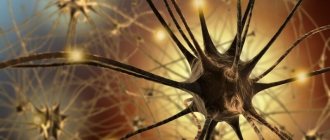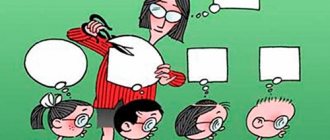The human brain is still the biggest mystery. However, thanks to the rapid development of neuroscience, we have learned to control his condition. Meditation and relaxation, developmental and intellectual exercises, neurofeedback training - all these are techniques aimed at training our brain. We tell you how it works and why it is needed. Olga Chashchina, psychotherapist, Ph.D., specialist in neurotechnology at X-Clinic, helped us understand the intricacies of this issue.
Understanding the role of the brain
There is no ignorance worse than ignorance towards oneself.
The brain controls almost everything in our body - from breathing, the functioning of the senses, to complex thought processes and imagination. There are many methods and tips for development, but, as I have seen, few emphasize the role of the brain in the process. The brain is a well-studied organ, and with knowledge about how the brain works, you can understand how certain techniques affect the brain and whether they are worth using. In addition, you can develop your own approaches based not on theoretical reasoning, but on scientific knowledge.
Wine price
A bottle of wine costs $10. Wine is $9 more than a bottle. How much does an empty bottle cost?
Answer: 0.5 dollar or 50 cents. Many people answer 1 dollar, but this is incorrect. If the bottle really cost that much, then its contents should be $9 more expensive - $10. This means that wine and a bottle would cost $11. And if a bottle costs 0.5 dollars, wine costs 9.5, then everything together is exactly 10 dollars.
Show answer
Hide answer
Nutrition
The brain is an extremely energy-demanding organ.
Therefore, nutrition should be uniform throughout the day and include very special substances. They are many and varied, but in general, proteins, complex carbohydrates, and omega-three fats are recommended. For example, my breakfast usually consists of an apple and scrambled eggs (sometimes with pieces of fish), lunch - from vegetables/fruits and meat, dinner - also from vegetables and meat. I also take vitamins every day, drink a lot of water (about 2-3 liters) and 2-4 mugs of green tea. Here it must be said that nutrition and brain function are directly related. If you do other things while eating, the food will not be absorbed, since for complete assimilation you need to perceive food with all your senses and allow your brain to focus on this difficult process.
Also, if you eat a lot at once, the brain will not properly receive energy and work smoothly. You can compare it to a fire - either you keep the fire even by adding wood little by little after a certain amount of time; or you wait until everything burns, then again throw a pile on top of the coals and light the fire again, wasting extra time and having an unequally distributed flame over time.
Plus, as I'll write later, a healthy diet makes it easy to exercise, which is great for the brain.
Therefore, you need to be very careful about nutrition - you need to keep the amount of food at one time small, and the food itself should fill you with energy evenly throughout the day.
Environment
First of all, air.
In addition to the nutrition that we deal with every day (remember Parerto’s rule that 20% of the reasons give 80% of the result?), it is very important that the air we breathe is full of oxygen. Therefore, you need to ventilate the premises, sleep with an open window if possible, and periodically do deep breathing exercises. Secondly, order. Oddly enough, it is the order outside that allows you to put things in order inside. At the same time, I call order the state of surrounding objects and people when the situation is not annoying. Sometimes, however, aggression is hidden - let's say that the presence of order is determined by whether you want to be in a certain environment or not.
Next, this is the number of distracting and irritating factors, and the number of relaxing and inspiring ones. Everyone has their own, but usually the first group includes excess noise, unpleasant odors, uncomfortable furniture, randomly located objects in the field of view, too bright or dim light, too bright or faded colors around, and so on. It should be noted that the brain knows how to adapt to constantly existing factors and ignore them - like noise from a window. And for others, like repairs behind a wall, it’s very difficult for him to adapt. And as for inspiring factors, everyone has their own. In general, you need to keep this in mind and strive to create an environment around yourself that makes it easy to concentrate
Imagination exercises
Imagination distinguishes us from animals. This is what biologists say: seals deny this fact. Develop your imagination to be able to navigate different points of view, experience subconscious experiences, and think creatively.
- Imagine in your head how you play the piano. How are your fingers positioned? At what speed are they moving? What melody is being played - hear the sound, catch the rhythm, try to move to the beat. Think of a story - why this composition was born, what feelings it is associated with. Do the exercise in silence.
- Print out several copies. On each one, complete the picture in accordance with the random theme that arose in your head (animals, body parts, accessories, etc.).
I mentally drew the girl. And you?
- Name associations with the numbers 12, 7, 4, 56, 11. When these numbers run out, come up with new ones and repeat the exercise.
- Look at the picture. Imagine the music with which she is associated. Write down a story that, in terms of dynamics (cheerful, cheerful, sad, etc.) repeats the composition in your head.
Radcliffe as a corpse in The Swiss Army Knife
- Think about the last movie you watched. Transfer the script to another era: how will the plot be transformed, will the characters’ characters change, will the ending be the same?
Dream
Sleep is one of the most important factors for healthy brain function. The following points can be highlighted:
- There should be enough sleep. On average, this is 7-8 hours of sleep without waking up
- Going to bed should be such that you can fall asleep within 15 minutes of being in bed.
- Sleep should be in a decent environment. Fresh air, darkness, silence are desirable.
- Sleep should coincide with a person's internal clock (usually starts before 12 am and ends at 6-10 am).
I try to sleep 8-10 hours and get up early in the morning.
Physical exercise
They say harmony is the absence of imbalance.
In this case, we are talking about the fact that the best rest for the brain is a change in the type of activity, for example, a change from mental activity to physical activity. I have a setting in Ubuntu that locks the computer for ten minutes every fifty minutes, and I have to go and take a walk. (a ratio of around 10-50 has been established by science and is recommended for those working at a computer). Every evening I try to walk in the fresh air for at least half an hour, or go for a bike ride (1-1.5 hours). I also like to do push-ups between activities and work with dumbbells. In addition, physical exercise throughout the day plays the following roles. Firstly, as a means to keep the body active - physical activity raises body temperature, and the brain works better. Secondly, it relieves psychological stress - it is known that suppressed emotions turn into clamps in the body, physical activity and sports relieve this along with stress, and so on. Thirdly, regular physical activity leads to the production of endorphins - hormones of joy and happiness - and thus the person who exercises improves his mood throughout the day. That’s why, by the way, exercise is so invigorating—it gets the blood pumping, as they say.
There is a lot more. For example, by switching over and going for a walk, you give a task to your subconscious, which will solve it better than you. In addition, regular physical activity keeps your body in good tone and allows you to look as slim as you decide.
Thus, a regular combination of normal activities at the computer with various types of physical training dramatically increases the efficiency of work and life in general.
On my own, by riding regularly for at least 5 hours a week, doing various physical activities, and quitting drinking alcohol altogether, I was sick for only 1 week during these six months. Against at least a month earlier.
Education
Everyone has probably read the articles where long-livers are less likely to lose their minds if they work and engage in intellectual work.
And this is true, and at any age - if the brain is not developed, then it begins, figuratively speaking, to become stale. The brain is our most important gift, and we must treat it with reverence. For good brain health, it is advisable to regularly teach it some new types of activities in different areas, mental and physical. Moreover, for a long period - from a month to a year. They have a very good effect on the brain: mastering new complex physical actions (dancing, martial art, a new sport), music, learning new languages.
Big and small birds
The pet store sells large and small birds. A big bird is twice as expensive as a small one. The woman bought five large birds and three small ones. If she had bought three large birds and five small ones instead, she would have spent $20 less. How much does each bird cost?
The price of one large bird is equal to the price of two small ones, so five large birds will cost the same as 10 small birds. This means that five large birds and three small ones will cost the same as 13 small ones. On the other hand, the price of three large and five small birds is equal to the price of 11 small ones.
Thus, the difference between the price of five large and three small birds turns out to be equal to the difference between the price of 13 and 11 small birds, that is, equal to the price of two small ones. Since two small birds cost 20 dollars, the price of one of these is 10 dollars.
Therefore, the bill for five large and three small birds would be $130. If a woman bought three large and five small birds, she would spend $110, which is really $20 less.
Answer: a small bird costs 10 dollars, a large bird costs 20.
Show answer
Hide answer
Perception of the world
The brain perceives the world in a distorted form, and this is very important to know and constantly know.
The picture of squares at the beginning of the article is an example of this. However, distortions in perception at the level of consciousness are much stronger (I already wrote about this in the article “Models of reality and their role in people’s lives”). In fact, these distortions are the cause of much conflict and misunderstanding throughout the world. That is why it is important to always question both the facts and truths coming from the outside, as well as your own beliefs and ideas about the world and yourself.
For me personally, the following incident was a revelation. I always considered crows to be cunning, and, seeing these birds, I looked for and found something cunning in their behavior. One day, passing by several birds, I looked into the eyes of a crow - and did not find anything cunning there, nothing human; only an incomprehensible feeling remained. And I realized that by endowing an object with some properties in my consciousness, I began to see it the same way in reality. Since then, I have been trying to constantly re-evaluate people, understanding that current perceptions may be wrong.
This consideration can be made to work for you in the following way. Realizing that you can control your perception of reality, and that it will always be incomplete, shape it to your liking. Take what you don’t like - people, work, home, and so on - then find the positive aspects, and strive to continue to perceive events related to the phenomenon under consideration only in a positive way. And, having convinced yourself that what is happening is positive and useful in some sense (even learning to joke about this topic), you will notice how your attitude will begin to change to a positive one - previously unloved people will begin to like them, respect for them will appear; tedious tasks will arouse interest and sparkle with new colors.
And if you fail to look positively, again, you have the power to change not only the model of the phenomenon in your brain, but also reality. Just change what is annoying to what is desirable - yes, you will have to make an effort, but it is worth it. That’s why I quit smoking and drinking - it was becoming increasingly difficult to find positive moments, and losses in the form of money, health, and time were obvious and negative for my life.
As a result, we can say that the constant and active development of new fields of activity comprehensively affects a person in a positive way - both on his worldview, respect for himself, for his personality, awareness of his versatility, and on the brain, which generously thanks for what he is presented with new food for the mind, as they say.
We have become smarter
In 1984, scientist James Flynn found that the average IQ was rising gradually—by about three points every decade. He studied IQ test scores from the early 20th century and found that the 1920s average would be considered mental retardation today, while today's run-of-the-mill scores in the early 20th century would be close to genius levels.
Flynn is confident that people have really become wiser thanks to the fact that they began to eat well from childhood and suffer less from disease. In addition, the level of school education has increased, and access to information has become easier.
The Flynn effect demonstrates that humanity as a whole is getting smarter, and the power of intelligence depends not only on DNA.
Character Development
In the last section I touched lightly, but here I will try to expand on the topic of working on oneself.
It turns out that almost 100% of a person’s life is the work of his hands, or rather, his brain. Our thoughts are what determines our actions and our character. It can be said that responsibility for almost every aspect in a person's life lies with him, whether he realizes it or not. Practical points that were useful to me (I continue to work on most of them now):
- Speech control. We hear almost everything we say. And if we constantly repeat something out loud, we soon begin to believe in it ourselves, and with our actions we make it happen in reality. This means that if you constantly tell others that you are sick and hear your own words, you will eventually get sick; the same thing about lack of time - there will not be enough time, and so on. Therefore, I try to speak confidently, positively, and little.
- Thought control is still the same. It is thoughts that determine the way of life, and correct thinking immediately gives a huge advantage over 95% of people who do not know about it. This is difficult for me, but I try different ways - from meditation to relax, music to create a positive mood, a notepad and psychological readiness to generate ideas, to willful efforts to suppress thoughts of worry, failure, anxiety, fear, and so on.
- Emotional control. Feelings are much like waves, we can't stop them from coming but we can choose which one to surf. © Jonatan Mårtensson. A sense of humor helps a lot - in a sad situation I always try to remember some joke or aphorism in order to smile. The ability to be calm, for example, in line at Sberbank also helps - over time, I began to wonder why people are so irritated by waiting. The fact is that emotions are poorly compatible with concentration and concentrated mental work, so it is worth learning self-control in order to allow the brain to work at full capacity.
- Strong-willed qualities, leadership qualities. Perseverance, will, the ability to go to the end, patience - this helps a lot. Once I spent 8 hours solving a “failed” problem in the VMK oral exam, so that I could later publish the solution on the forum and gain satisfaction with myself. A useful quality that helps you achieve and enjoy results.
- Ability to communicate. I started life as a black sheep, and at school it was difficult to communicate, I was a withdrawn and depressed person. Over time, through effort, I made myself optimistic, cheerful, and learned to find a common language with almost any people. It all came down to the development of adequacy and the ability to listen to the interlocutor combined with empathy, and of course - a lot of practice.
Unleashing creativity
There is a well-known myth about creativity: a person’s creative potential depends on which hemisphere is dominant. But in reality this statement is not supported by anything.
Programmers and artists use both hemispheres equally. In order for “creativity to arise,” the author of the book writes, it is necessary for all parts of the brain to work harmoniously. It is in the consistency between these areas that the secret of creativity lies.
In order for the brain to build connections, it needs to “put together” the necessary information. Rahul Jandial shares his method.
- The evening before surgery, he carefully examines the patient's brain scans.
- Before going to bed, he mentally scrolls through these images in all projections.
- In the morning he looks at the pictures again for a few minutes.
This is how the image of the surgical field where the surgeon will act is firmly imprinted into his brain.
Additionally, two evenings a week before bed, Jandial reads scientific articles on his topic. Gradually, the brain discovers additional connections between already known data and finds something new.
Moments of creative insight often occur between sleep and wakefulness—when we are almost asleep or almost awake. This is a special state of the brain in which you can “open the doors to the creative potential hidden in the subconscious.”
Courses on the topic:
Sales
Public performance
Dmitry Buzovsky, Public speaking expert with 14 years of experience
PowerPoint
Magic PowerPoint
Alexander Kucheruk, Ex-product marketer at Microsoft
But there are other ways to awaken creative energy.
Exercise 1. Let your mind wander
A wandering mind stimulates creative imagination. The further our thoughts wander, the more clearly connections between distant parts of the brain are visible in MRI studies.
Spend time without external stimuli in the form of gadgets or conversations - let your thoughts freely jump from one to another, allow yourself to be bored or fantasize.
Exercise 2. Get out into nature
Contact with nature stimulates creativity. This was proven by an experiment by psychologist David Strayer. He asked two groups of participants to take a creativity test. One completed it before a 4-6-day backpacking trip, the other - after. The results of the second group were 50% better.
To spur creativity, you don't have to go on a week-long trip, just a short walk. For example, Einstein walked to work to the university and back every day - 2.5 km one way.
Literature
I read a lot, but from the books you can always single out those that influenced me the most.
- Robert Anthony, The Secrets of Self-Confidence.
 The book, after which I stopped drinking, moved out from my parents, and in general my hair became smooth and silky. Seriously, the book in terms of density of useful information and detail was in some ways comparable to “The Perfect Code” for me. It contains recipes for uprooting almost all types of cockroaches - low self-esteem, feelings of guilt, subjectivity and judgment of other people, fears, feelings of loneliness, and so on.
The book, after which I stopped drinking, moved out from my parents, and in general my hair became smooth and silky. Seriously, the book in terms of density of useful information and detail was in some ways comparable to “The Perfect Code” for me. It contains recipes for uprooting almost all types of cockroaches - low self-esteem, feelings of guilt, subjectivity and judgment of other people, fears, feelings of loneliness, and so on. - Matthew McDonald, Train Your Brain to Work. Scientific basis for many points that I read about in other books and articles, incl. Anthony's books. Everything is detailed and tasteful.
- Timothy Ferriss, How to Work 4 Hours a Week. I was infected with optimism, approach to life, and just an attitude towards time management.
A list of three books, in fact there were hundreds of them. Even in the science fiction of Asimov and the works of Hesse, there is always something that you can think about and change in yourself or the world around you.
I wish you success!
Keep a diary
Keeping notes will help you prioritize, think clearly, and focus on important things instead of urgent ones. A journal also helpsEffects of Expressive Writing on Psychological and Physical Health cope with stressful situations and anxiety more easily and even increasesEffect of Written Emotional Expression on Immune Function in Patients With Human Immunodeficiency Virus Infection the activity of immune cells.
“Keeping notes improves the brain's ability to perceive, process, store, and retrieve information,” explains neurologist Judy Willis. “This develops long-term memory, helps to notice patterns of thinking, and gives time for reflection. And with the right approach, it becomes a source of conceptual development and stimulates the higher mental functions of the brain.”











